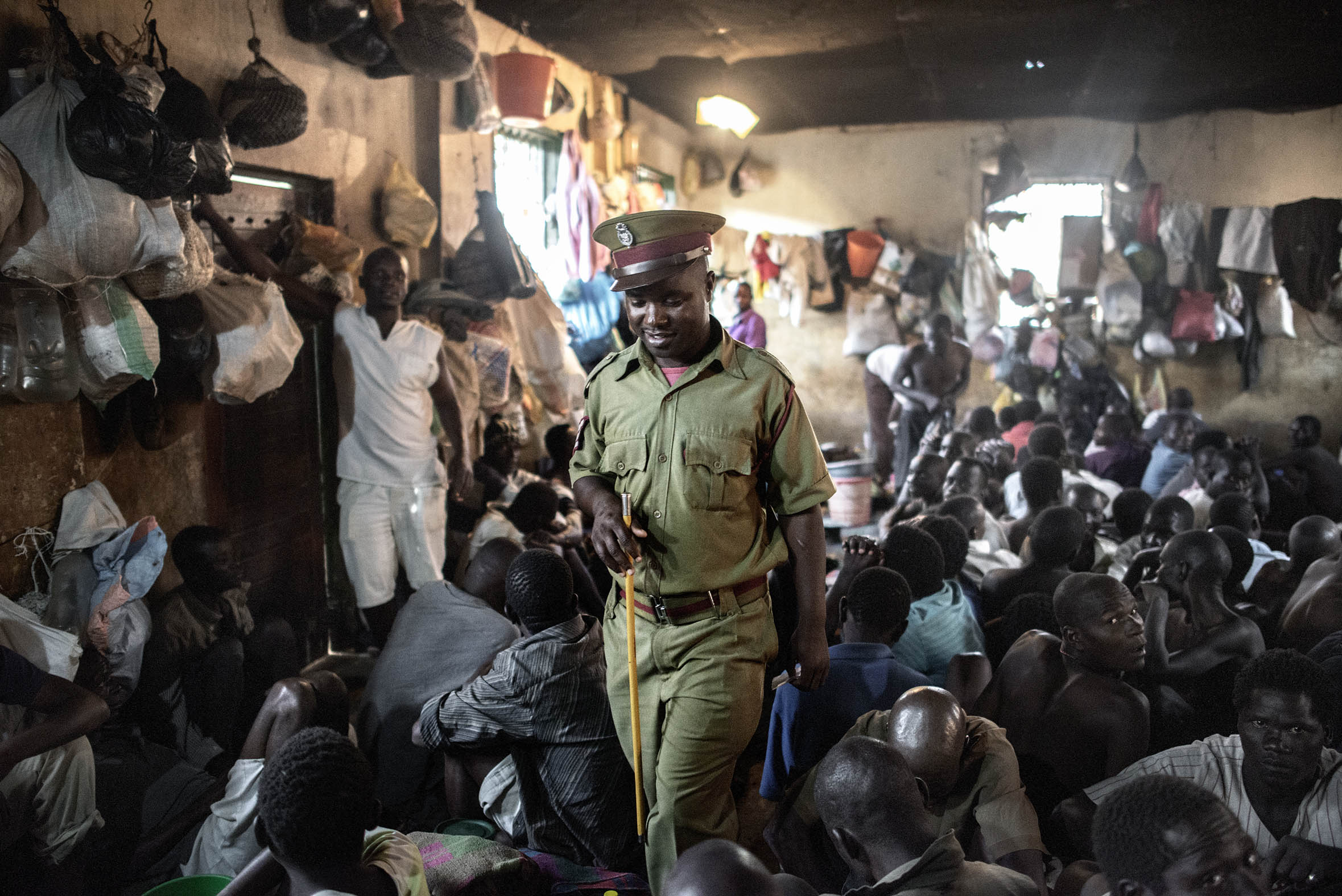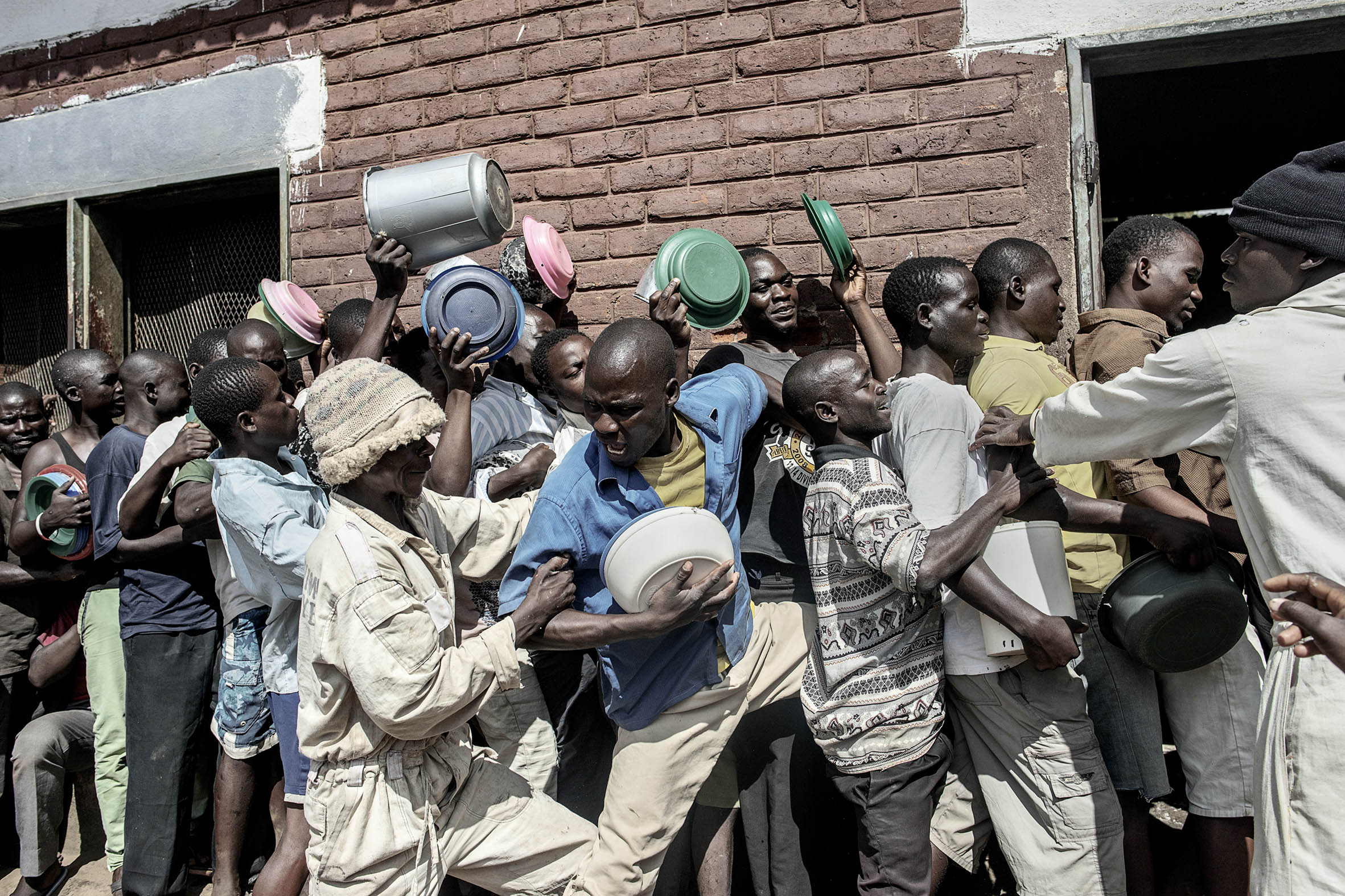Sister Anna's work relies on donations from well-wishers and her Franciscan community back home
On a blustery Tuesday morning a white Toyota Hilux bakkie pulls up in a cloud of dust at the Chichiri prison in Blantyre, Malawi.
A group of inmates rushes for- ward. The vehicle is a familiar sight here — as is the grey-haired nun who bounds out of the driver’s seat.
Sister Anna Tommasi briskly issues orders. Trays of eggs, tangerines, sugar, soya meal porridge, dried fish, vegetables, bags of maize, bread and powdered milk are off- loaded and sorted.
“This is for the critically ill inmates,” Sister Anna explains.
She heads through the courtyard, where most prisoners are basking in the pale winter sun. It is a welcome respite from the desperately overcrowded cells, where they are locked in for 14 hours from dusk each day and where the smell of damp clothes, unwashed bodies and desperation hangs stale and palpable in the air.
Conditions are so cramped that prisoners sleep sitting upright on the floor with their legs folded.

A prison warden walks through a Malawian prison cell. Many cells are so overcrowded, prisoners sleep sitting up (Luca Sola, MSF)
Prison pantries – and budgets – are bare
Today Sister Anna heads straight for the prison’s sickbay to check on one of the very weak prisoners.
Charles Mopiha (27) manages a smile when he sees the nun, although he is clearly in excruciating pain.
Mopiha was sentenced to four years’ imprisonment with hard labour for stealing maize from a warehouse where he was a security guard. When he started his sentence in 2014 at Mikuyu prison in southern Malawi, he was already suffering severe stomach pains.
He had never been to a health facility and didn’t know what had caused his illness.
In prison, Mopiha got weaker by the day. He received no medical care and says he only survived because his fellow prisoners were sharing their meagre food rations with him.
Prisoners are fed once a day in Malawi’s jails. They only get one bowl of nsima, the country’s staple meal of boiled maize meal. Once a week they get boiled beans, pigeon peas or vegetables. This barely keeps them alive.
The country’s prisons are critically underfunded. At least five billion Malawian kwacha (about $6.9-million) is needed each year to feed the prison population, says Caroline Aluda, the prison project co-ordinator for humanitarian organisation Doctors Without Borders.
But for the 2016 financial year, the prisons received a paltry 1.75-million kwacha — barely $2 500 — to feed the 14 000 prisoners in the country’s 28 jails.
“Prisoners with chronic illnesses such as HIV … diabetes and hypertension, and lactating mothers do not get a special diet,” Aluda says. “They are treated like all other prisoners.”
The crippling food shortages in Malawi have seen the already small food portions shrink. Mopiha says his daily portion of nsima porridge wasn’t even enough for one meal. “I gave up hope. I thought the pain would never go away,” he recalls.

Prisoners line up for food. Doctors Without Borders notes that some inmates report going for as long as two days without anything to eat. (Luca Sola, MSF)
A place of healing behind bars
In June, Sister Anna came across Mopiha in Mikuyu prison.
“She noticed that I was very sick [and] pleaded with the authorities at the prison to allow her to take me to Chichiri to be examined and to get medical care,” Mopiha says.
He was moved to Chichiri, where he was admitted to the sickbay. There, 16 critically ill patients are on a special diet provided by Sister Anna.
The soft-spoken nun has been in Malawi since 2003, when she was sent by her Franciscan Catholic community in Italy on a missionary assignment. She soon found herself helping prisoners.
“It was as if they were all abandoned, yet they needed spiritual and physical support and love. This was confirmed when I began to interact with them: they told me about their problems,” she explains.
Sister Anna took special interest in the plight of male inmates, who were held in desperately overcrowded cells where diseases went untreated and spread. Chichiri prison was built to house only 800 prisoners but holds close to 2 000.
“I was assisting them from their congested cells until I was allowed to renovate an old kitchen into an infirmary,” she recalls.
The sick bay, which has 16 beds and was completed in 2010, was built with funding she received from the Italian Episcopal Conference. Unlike the cells, the sickbay is immaculate: patients have their own beds with clean linen and the toilets and bathroom are hygienic and clean.
Hope among the hungry
Now 71, Sister Anna has officially retired — but she has adopted Malawi as her second home and devotes herself to improving conditions in the country’s prisons. She visits Chichiri prison twice a week and works in nine other jails across the country.
Sister Anna runs a feeding programme for prisoners with HIV who are on treatment, as well as for the very weak and ill inmates in the sickbay at Chichiri, who have special food cooked for them.
Any sick inmate she comes across is thoroughly examined and given the right medication. Where necessary, Sister Anna foots the bill for their medical treatment herself: almost every month she pays for up to five prisoners to have biopsy examinations.
Out of the 1 913 prisoners in Chichiri, 600 have HIV, according to Anne Kitalo-Hara, the tuberculosis officer for the prison. Of these, 403 are on antiretrovirals and 19 are on tuberculosis treatment.
“Sister Anna is trying to make a difference in the inmates’ lives. She ensures that the cases that cannot be managed here are sent to Queen Elizabeth Central Hospital for comprehensive treatment. It’s really hard for sick inmates to stay in prison as there isn’t enough staff to take care of them,” Kitalo-Hara explains.
Aluda says Sister Anna shows that just one person can make a difference, adding that the nun’s intervention has a “great impact” on prisoners’ lives.
Although Sister Anna does not keep record of the number of prisoners she has helped, her initiative has reduced the high death toll among inmates, according to Smart Maliro, the spokesperson for the Malawi Prison Service. He admits the prisons can’t grow enough food on the land they cultivate and says the government appreciates the nun’s help.
Mopiha is one of the convicts who is showing remarkable progress in the sickbay, where he is being treated for liver problems. “The doctor told me that I have a serious health problem, which needs frequent check-ups and extra care,” he says.
Sister Anna now wants to expand the sickbay as it can’t keep up with the demand for special care. She is also negotiating with the prison authorities to allow her more space to open a section for physiotherapy.
But raising money for her programmes is an enormous task. She depends on well-wishers as well as donations from the Franciscans, a religious order within the Catholic Church.
But Sister Anna has no plans to cut back on her efforts: there is too much she still wants to do.
“It is my vocation,” Sister Anna says, shrugging. “It is wonderful to see someone who was close to death, like Charles [Mopiha], come back to life.”